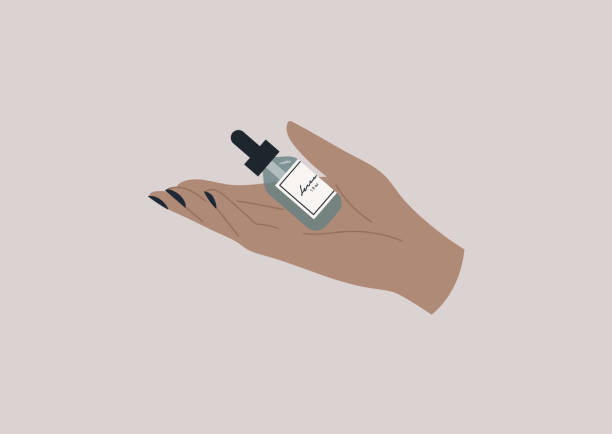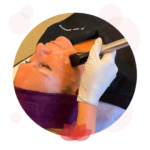
Vitamin C is an essential nutrient that plays a crucial role in maintaining the health of our skin. It is an antioxidant that helps to protect our skin from damage caused by free radicals and UV radiation. Vitamin C is also involved in the production of collagen, a protein that is essential for the elasticity and firmness of our skin. Due to its numerous benefits, vitamin C is a popular ingredient in many skincare products, including serums. However, not all vitamin C serums are created equal. In this article, we will discuss the most important vitamin C serum ingredients and how they can benefit your skin.

What are the most important vitamin C serum ingredients?
L-Ascorbic Acid
L-ascorbic acid is the most common form of vitamin C used in skincare products, including serums. It is a water-soluble vitamin that is easily absorbed by the skin. L-ascorbic acid is a potent antioxidant that can neutralize free radicals and prevent damage to our skin cells. It is also involved in the production of collagen, which helps to keep our skin firm and supple. L-ascorbic acid has been shown to improve the appearance of fine lines, wrinkles, and hyperpigmentation. When using a Vitamin C Face Serum containing L-ascorbic acid, it is important to choose a product with a concentration of at least 10%. Lower concentrations may not be effective, while higher concentrations may cause irritation or sensitivity. It is also important to choose a product that is stable and has a low pH to ensure maximum absorption and effectiveness.Vitamin E
Vitamin E is another antioxidant that is often combined with vitamin C in skin care products, including serums. Vitamin E helps to protect our skin from damage caused by free radicals and UV radiation. It also has anti-inflammatory properties that can help to reduce redness and irritation. When used in combination with vitamin C, vitamin E can enhance the antioxidant properties of the serum. Vitamin E can also help to stabilize vitamin C and prevent it from oxidizing, which can reduce its effectiveness. Look for a vitamin C serum that contains both L-ascorbic acid and vitamin E for maximum benefits.Ferulic Acid
Ferulic acid is a plant-based antioxidant that is found in many fruits and vegetables. It is often used in combination with vitamin C and vitamin E in skincare products, including serums. Ferulic acid can enhance the antioxidant properties of vitamin C and vitamin E, making them more effective at neutralizing free radicals and preventing damage to our skin cells. Ferulic acid can also help to stabilize vitamin C and prevent it from oxidizing. It has been shown to improve the effectiveness of vitamin C by up to eight times. Ferulic acid can also help to reduce inflammation and protect our skin from UV damage.Hyaluronic Acid
Hyaluronic acid is a naturally occurring substance in our skin that helps to keep it hydrated and plump. It is often used in skincare products, including serums, to help improve the hydration and elasticity of our skin. Hyaluronic acid can also help to reduce the appearance of fine lines and wrinkles. When used in combination with vitamin C, hyaluronic acid can help to boost the effectiveness of the serum. Vitamin C can help to stimulate the production of collagen, while hyaluronic acid can help to keep our skin hydrated and plump, which can further enhance the appearance of our skin.Niacinamide
Niacinamide, also known as vitamin B3, is a water-soluble vitamin that is often used in skincare products, including serums. It has been shown to improve the appearance of fine lines, wrinkles, and hyperpigmentation. Niacinamide can also help to improve the elasticity and firmness of our skin and reduce inflammation. When used in combination with vitamin C, niacinamide can help to enhance the overall effectiveness of the serum. Niacinamide can help to reduce the irritation that can sometimes occur when using a vitamin C serum. It can also help to improve the barrier function of our skin, which can help to protect it from environmental damage.Retinol
Retinol is a form of vitamin A that is often used in skincare products, including serums. It has been shown to improve the appearance of fine lines, wrinkles, and hyperpigmentation. Retinol can also help to increase the production of collagen, which can improve the elasticity and firmness of our skin. When used in combination with vitamin C, retinol can help to enhance the overall effectiveness of the serum. Vitamin C can help to protect our skin from damage caused by free radicals, while retinol can help to stimulate the production of collagen and improve the texture of our skin.Conclusion
When choosing a vitamin C serum, it is important to look for products that contain the most important ingredients. L-ascorbic acid is the most important ingredient in a vitamin C serum, but it is also important to look for products that contain vitamin E, ferulic acid, hyaluronic acid, niacinamide, and retinol. These ingredients can help to enhance the antioxidant properties of the serum, improve the hydration and elasticity of our skin, and reduce the appearance of fine lines, wrinkles, and hyperpigmentation. By choosing a vitamin C serum with the right ingredients, you can help to keep your skin healthy, youthful, and radiant. Read Also: Benefits And Drawbacks Of Public Relations And Communications For New Firms








